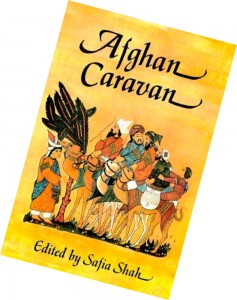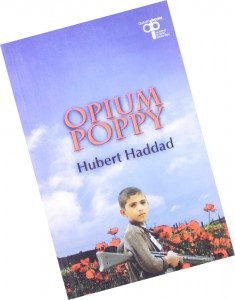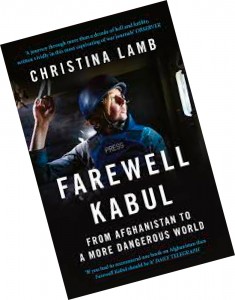No way out Powerful nations have long exploited Afghanistan out of greed, self-interest and political gamesmanship. They created the hydra-headed Taliban.
Few in India have shown the gumption that actor Naseeruddin Shah did to call out those in India celebrating the return of the Taliban in Afghanistan. In a video he said, “Even as the Taliban’s return to power in Afghanistan is cause for concern for the whole world, there are celebrations among some sections of Indian Muslims. This celebration of the barbarians is no less dangerous.” Do you want ‘to reform Islam and support modernity’ or go along with barbaric practices, he asked. The return of the Taliban presages the return of regressive social mores, the denial of education to children, and the repression of women. There’s good reason for growing fears; make no mistake about this.
Having said this, years of political intervention and military invasion by Western nations have made Afghanistan a battle-ground serving greed, self-interest and political gamesmanship. Yes, these and their concomitant death and destruction abound all over the world. Yet, it’s different, worse, in Afghanistan.
Farewell Kabul: From Afghanistan to a More Dangerous World by British war correspondent Christina Lamb had been winking at me from the living room shelf for a while. ‘One day,’ I’d think to myself. The day finally arrived. Published in 2014, and filled with facts and figures, this 640-page book also features stories about real people being targeted by real snipers, and real Chinook helicopters providing cover to troop movement. Embedded with the British forces and then with the US, Christina provides a hard look at the circumstances of the human tragedy that is Afghanistan, and the selfish, often blinkered aggression, both from outside forces and from within. In the end, the story of Afghanistan is the story of killings in cold blood of some people we can hold accountable for the situation and of the majority, both unaccountable and uncountable, whose homes and fields and herds have been blasted out of existence.
There is a phrase for this — collateral damage — often explained away as the ‘unfortunate, inevitable’ consequence of conflict. In the same way as, I suppose, it is the fallout of a ‘war on terror’, the purging of rationalists, the threat of suspicion, the fear of ‘one god’ or ‘other gods’, the amount of melanin produced by melanocytes that determine the colour of human skin and eyes and hair, the misogynistic hierarchies of social order drawn up by self-serving groups…
Ten-year-old Alam is the central character in Opium Poppy published originally in French by Hubert Haddad, and Englished by Renuka George. He and thousands of children like him are hostage to this crop which is the bedrock of both Afghanistan’s tattered economy as well as the global drug trade. Alam tries to escape its tyranny by seeking refuge in Paris, where he is crushed by the drug trade. The book, in the words of Le Monde journalist Frederic Bobin, “… is a novel on the flouted innocence of children, thrust into a world gone mad … the universal drama of youth, betrayed.”
Youth, betrayed. These are horrifying words; they describe the situation among the young people of Afghanistan, with their dreams, ambitions and hopes for the future. Somewhere towards the end of Opium Poppy is a passage that tragically reinforces the nature of this betrayal: ‘Alam studies the junkie gravely, as her scrawny frame leans down from a balcony of paradise. Cannabis and alcohol, heroin fumes on an aluminium sheet, ether and even burnt glue, he had tasted them more than once, in Kabul as well as in Istanbul or in the sewers of the station in Rome. All the street kids did it more or less regularly, the thousands of refugees, those who had fled their villages, those who refused to join the insurgents. Their only ambition was to earn enough money and to leave, to strike a deal with a vaguely honest escort, to reach the other world, the one they saw in the pictures awash with joy.’ For most of them, these pictures have long burned down.
In some ways, Afghan Caravan which fell out of another bookshelf, came as relief. Indeed, this pastiche of writings edited by journalist Safia Shah throws light on many aspects of the Afghanistan conundrum. The first piece, called ‘I married an Afghan’, is by Morag Murray, a Scotswoman who married the son of an Afghan chief in the early 1920s. Here, she writes about journeying to her husband’s home for the first time: ‘The road ran through the Khyber Pass. The great rocks, towering boulder upon boulder to heights ranging from 600 to 1000 feet, strike a peculiar terror in the traveller… At the actual frontier there is a ‘turnstile’ through which one passes into ‘No Man’s Land’… the gate leading to what is one of the least known and most remarkable countries in the world — a strip of land inhabited by clans who owe allegiance to none but their own chiefs, … always armed and sleeping with their rifles at their sides. Some of the greatest empires the world has ever known have tried to conquer them, in vain.’
In Gen Sir Andrew Skeen’s words, the fighters ‘…come down hillsides like falling boulders … These men are as hard as nails; they live on little, carry nothing but a rifle and a few cartridges, a knife and bit of food… Their power of moving concealed is astounding, not only in moving from cover to cover, but in slipping from light to shadow, and background to background.’
The fighters in Christina’s book are armed to the teeth, with a strange and scary tendency to drop their weapons accidentally, even rocket launchers. Many of the Taliban are recruits from Pakistan, Uzbekistan, Chechnya; they represent the rabid and the disgruntled as well as the educated and the ambitious. Corruption is rife; not even aid agencies are spared: ‘The UN has its own airline to fly staff in and out of danger spots, so it quickly began its own service from Dubai or Islamabad to Kabul… What I didn’t realise was that the millions of dollars to subsidise this service was coming from the money pledged to help Afghanistan.’
Then there are the opium brides. Christina describes meeting Parwin, 15. She is hiding from a 64-year-old drug smuggler to whom she’s been pledged by her father because he borrowed $2,000 in return for 24 kilos of opium from his farm. Unfortunately, the harvest yields little. Consider this: the West is determined to end drug trafficking from a country where opium is king. As Helmand’s governor Sher Mohammad Akhundzada tells Christina, “The West needs to understand that if we eradicate, many farmers can’t discharge their loans and families will have to sell their children.”
All this is just skimming the surface: dip into these books and you will learn so much about people, policies and politics. Overriding all the insights is the realisation that Western nations tend to overlook the fact that one size can never fit all: the world comprises different faiths; unique cultural, social, political, economic concerns; and various systems of loyalty. At the same time, oppression and repression are the same in any language, in any faith, in any part of the world. In this context, it may be useful to go back to this column in the June issue, which talks about Peace in the Age of Chaos. There are many books, both fiction and nonfiction, featuring Afghanistan. You only have to look.
The columnist is a children’s writer and senior journalist.



